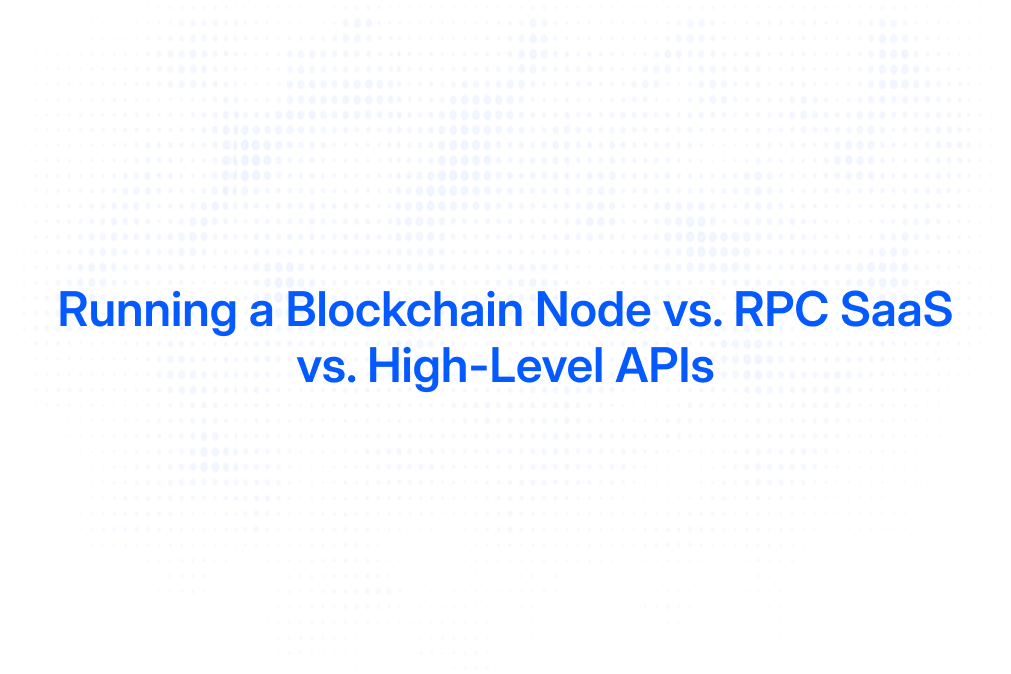Why RPC Auto-Routing is Critical for DeFi Protocols
Decentralized Finance (DeFi) protocols rely heavily on blockchain networks to execute transactions, fetch data, and maintain trustless interactions. At the core of these interactions lies the Remote Procedure Call (RPC) infrastructure, which acts as the gateway between decentralized applications (dApps) and blockchain nodes. However, as DeFi protocols scale and user expectations for speed and reliability increase, traditional single-provider RPC setups reveal critical limitations. This is where RPC auto-routing emerges as a game-changing solution, offering enhanced reliability, reduced latency, and cost optimization. This article explores why RPC auto-routing is essential for DeFi protocols and how it fundamentally improves blockchain infrastructure performance.
Understanding RPC Auto-Routing in the Context of DeFi
RPC auto-routing is a mechanism that intelligently directs blockchain requests across multiple RPC providers instead of relying on a single endpoint. In simpler terms, it automatically chooses the best available RPC node or provider to handle each request based on factors like latency, uptime, and load. This contrasts with traditional setups where a DeFi protocol connects to one RPC provider, risking downtime or degraded performance if that provider experiences issues.
For DeFi protocols, where every millisecond counts and transaction failures can lead to significant financial losses, RPC auto-routing is not just a convenience but a necessity. It ensures continuous availability by dynamically switching between providers, thereby reducing the risk of RPC downtime—a common pain point in Web3 infrastructure.
How RPC Auto-Routing Works
At its core, RPC auto-routing employs sophisticated algorithms and monitoring tools to evaluate the health and responsiveness of multiple RPC endpoints. When a DeFi protocol sends a request, the auto-router assesses which provider can deliver the fastest and most reliable response. If one provider becomes unresponsive or slow, the router seamlessly fails over to another without interrupting the user experience.
This process involves real-time metrics tracking, load balancing, and failover strategies, making RPC auto-routing a robust solution for maintaining high availability and performance in DeFi applications. The algorithms used can analyze historical data and current network conditions to predict which provider is likely to perform best at any given moment. This predictive capability is crucial in a landscape where network congestion can fluctuate rapidly, impacting transaction speeds and reliability.
Moreover, the implementation of RPC auto-routing can significantly enhance the user experience in decentralized applications (dApps). Users are often unaware of the underlying complexities involved in blockchain interactions, and they expect seamless performance similar to traditional web applications. By ensuring that requests are handled efficiently and without delay, RPC auto-routing contributes to a smoother and more responsive interface, fostering greater user trust and engagement. As the DeFi ecosystem continues to grow, the importance of such advanced routing mechanisms will only increase, paving the way for more sophisticated and resilient financial applications.
The Critical Importance of RPC Auto-Routing for DeFi Protocols
1. Enhancing Reliability and Reducing Downtime
RPC downtime can be catastrophic for DeFi protocols. When RPC endpoints go offline or become sluggish, users face transaction failures, delayed updates, or even loss of funds due to missed opportunities. According to recent analyses, RPC outages can cost blockchain projects millions in lost transactions and user trust.
RPC auto-routing mitigates these risks by providing redundancy. Instead of a single point of failure, DeFi protocols can rely on multiple RPC providers, ensuring that if one fails, others instantly take over. This redundancy is critical in maintaining seamless user experiences and protecting protocol integrity.
2. Reducing Latency for Faster Transactions
Transaction speed is paramount in DeFi, where market conditions can shift in seconds. High latency in RPC calls can lead to delayed transaction confirmations, slippage in trades, or missed arbitrage opportunities.
Multi-provider RPC routing intelligently selects endpoints based on geographic proximity and current network conditions, significantly lowering latency. Multi-region RPC routing is a strategy that leverages servers distributed across different locations to serve requests from the closest and fastest node, enhancing transaction throughput and responsiveness.
3. Cost Optimization Through Intelligent Routing
DeFi projects often face budget constraints, especially startups and smaller protocols. RPC providers typically charge based on usage, and inefficient routing can lead to unnecessary costs.
By auto-routing requests to the most cost-effective providers without compromising performance, DeFi protocols can reduce RPC expenses by up to 40%. This cost optimization allows projects to scale sustainably while maintaining high service quality.
Comparing RPC Auto-Routing with Traditional Single-Provider Models
Many early DeFi protocols relied on single RPC providers like Infura or Alchemy. While these providers offer robust services, depending solely on one provider introduces several risks and limitations.
Single-Provider Risks
Using a single RPC provider creates a single point of failure. If that provider experiences outages or throttling, the entire DeFi protocol’s operations can be disrupted. Moreover, single providers may impose rate limits or pricing changes that can unexpectedly increase costs or degrade performance.
In contrast, RPC auto-routing distributes requests across multiple providers, reducing dependency on any one service and mitigating these risks. This approach also provides flexibility to switch providers if pricing or service quality changes.
Performance and Scalability Benefits
Single providers can become bottlenecks during periods of high demand, leading to slow responses or failed requests. Multi-provider RPC routing balances the load, preventing overload on any single endpoint and enabling DeFi protocols to scale to millions of API calls without breaking their budgets.
Integrating RPC Auto-Routing into DeFi Protocols: Best Practices
Choosing Multiple Reliable RPC Providers
The foundation of effective RPC auto-routing is selecting a diverse set of reliable RPC providers. This diversity ensures that failover mechanisms work effectively and that latency is minimized by routing requests to geographically optimal endpoints.
Providers should be evaluated based on uptime guarantees, latency metrics, pricing models, and support for the specific blockchain networks used by the DeFi protocol.
Implementing Real-Time Monitoring and Failover
Continuous monitoring of RPC endpoints is essential to detect outages or performance degradation promptly. Auto-routing systems must incorporate health checks and latency measurements to dynamically adjust routing decisions.
Failover strategies should be seamless, ensuring that users do not experience interruptions or transaction failures during provider switches.
Optimizing for Multi-Cloud and Multi-Region Infrastructure
Advanced RPC auto-routing solutions leverage multi-cloud proxies (MCP) and multi-region deployments to further enhance reliability and speed. By integrating with platforms like Google MCP, DeFi protocols can orchestrate API calls across cloud providers, reducing latency and increasing redundancy.
This multi-cloud approach also protects against regional outages or cloud provider-specific issues, adding an extra layer of resilience.
The Future of DeFi Infrastructure: Embracing RPC Auto-Routing
As DeFi continues to grow and evolve, infrastructure demands will only increase. The future of blockchain infrastructure lies in intelligent, multi-provider RPC routing combined with multi-cloud orchestration. This evolution promises not only improved reliability and performance but also cost efficiencies that enable broader adoption and innovation.
DeFi protocols that adopt RPC auto-routing today position themselves to handle the scale and complexity of tomorrow’s decentralized financial ecosystem. By mitigating risks associated with single-provider dependence and optimizing for speed and cost, RPC auto-routing is becoming an indispensable component of modern DeFi infrastructure.
Conclusion
RPC auto-routing is critical for DeFi protocols aiming to deliver fast, reliable, and cost-effective services. By leveraging multiple RPC providers, real-time monitoring, and multi-cloud strategies, DeFi projects can overcome the limitations of traditional single-provider setups. This ensures uninterrupted access to blockchain networks, reduces latency, and optimizes operational costs—ultimately enhancing user trust and protocol resilience.
In the competitive and rapidly evolving DeFi landscape, integrating RPC auto-routing is not just a technical upgrade; it is a strategic imperative for sustainable growth and success.
Ready to take your DeFi protocol to the next level? With Uniblock, you can streamline your Web3 infrastructure and ensure your dApps run smoothly, even during peak times. Join over 2,000 developers who are already enjoying the benefits of our single API endpoint that intelligently auto-routes traffic, ensuring maximum uptime and minimal latency. Don't let vendor lock-in hold you back—scale with confidence and focus on innovation while we handle the complexities of decentralized infrastructure. Start building with Uniblock today and be part of the future of DeFi infrastructure.
.svg)


.png)



